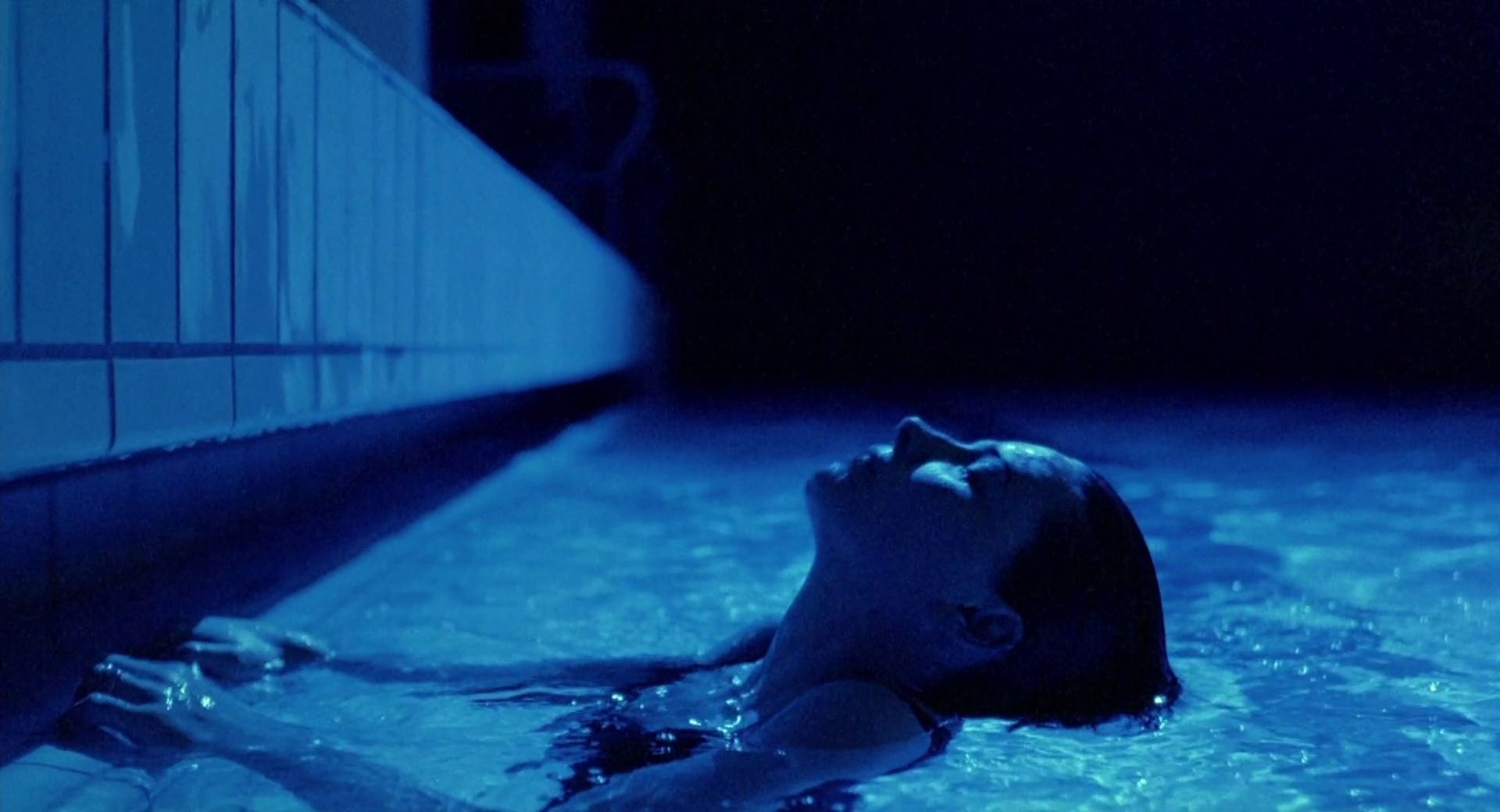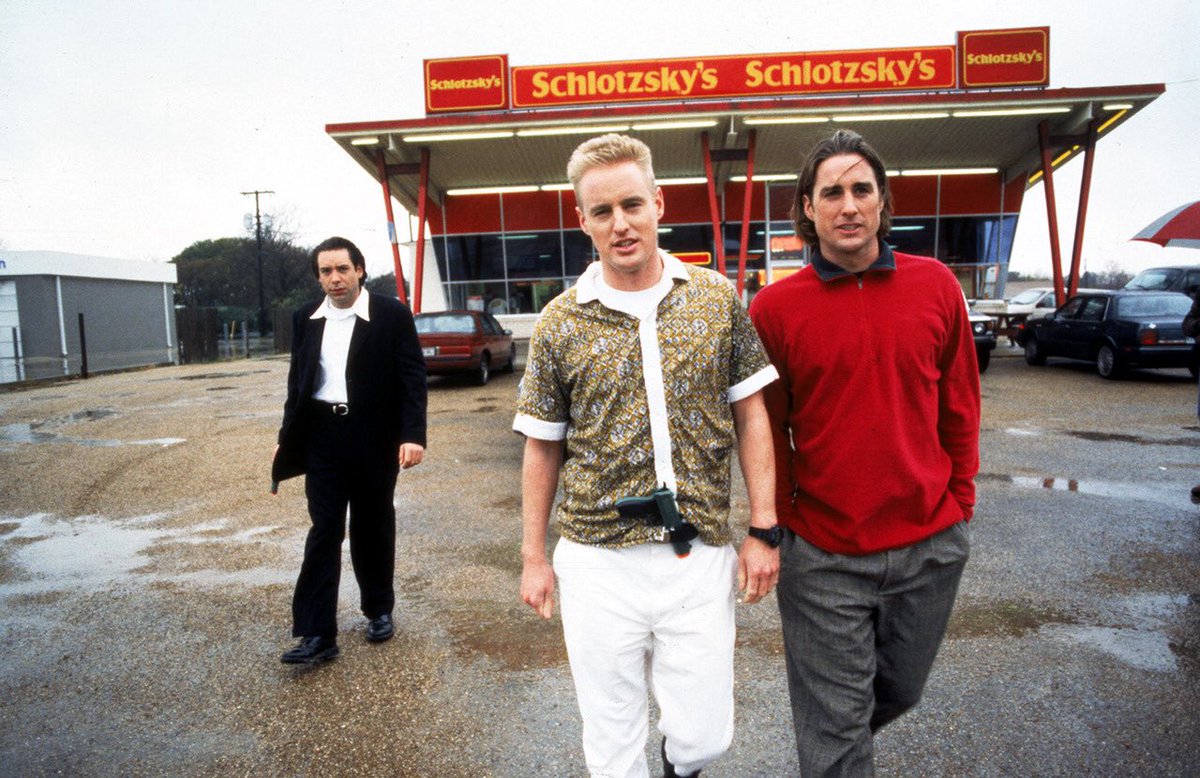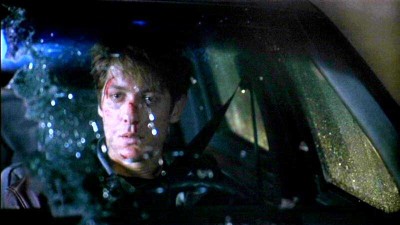The Film
I hadn’t yet viewed any of the Three Colors trilogy by famed director Krzysztof Kieslowki and I’m not sure if Mothers Day weekend was the best time to start. The first film in the triptych, Three Colors: Blue, begins with a car crash which takes the lives of Julie’s husband and daughter. Traumatized by the accident, Julie strips herself of her old life, moving out of the house she lived in with her famous composer husband. She moves into an apartment, only taking with her a jeweled suncatcher which once hung in “the blue room” which belonged to her daughter.
She does her best to live a life unattached, only choosing to make friends with a downstairs neighbor, a prostitute that the other tenants want to remove. She spends the majority of her time either drinking coffee in a nearby cafe or swimming in a pool at night when there is no one to interrupt her preferred solitude. But as the film progresses she learns the past parts of her life might not be so ready to let her go.
As I stated, this might not have been the best film to watch on Mother’s Day, as it is steeped and saturated with sadness. Kieslowski meant for each of the films in the trilogy to take on some meaning from the colors he associated with in the French flag, and while the blue stands for liberty, it is the one thing that Julie, played by the amazing Juliette Binoche, cannot achieve until she comes to terms with her sadness. At first she tries to obtain that freedom by pushing everything in her life away, but she learns there is a vast difference between pushing away and letting go.
Binoche is an absolute wonder in this film. She gained notoriety a few years later with her Academy Award winning role in The English Patient, and while that film remains a favorite for me, the argument can be made that she is far better in this film. Without letting us in, she is able to portray so many emotions with just a look or a gesture, rarely ever going for the big emotional release that we so desperately want her to have. It’s impossible not to be taken in by her performance and want her to make the choices that could bring her, maybe not happiness, but at least some relief.
While this is my first Kieslowski film, it will certainly not be my last. The artistry on display is at times mesmerizing, as he knows when to just let a scene “be.” His use of the titualar color to engage our emotions is expert, using it to convey the necessary mood as well as an emotional trigger when it comes to certain objects. The score is magnificent, which shouldn’t come as a surprise considering the one of the films plot points centers around the unfinished masterpiece of her husband, which Julie may or may not have written the majority of.
Three Colors: Blue is a masterpiece.
Rate 5 out of 5 stars.
The Supplements
On Blue: A twenty one minute video essay created by film studies professor Annette Insdorf, who was the author of the book Double Lives, Second Chances: The Cinema of Krzysztof Kieslowski. It’s a quick yet informative look at Blue and it’s place within the trilogy as well as the career of Kieslowski.
Kieslowski’s Cinema Lesson: Kieslowski discusses the genesis and execution of a small scene involving a sugar cube and how it relates to Julie’s worldview.
Select audio commentary from Juliette Binoche
Zbigniew Preisner: A twenty one minute interview with the film’s composer.
Reflections on “Blue”: Film critic Geoff Andrew, actor Juliette Binoche, filmmaker Agnieszka Holland, cinematographer Stawomir Idziak, film studies professor Anette Insdorf, and editor Jacques Witta individually and briefly discuss the production of Blue and reflect on director Krzysztof Kieslowski for about seventeen minutes.
Kieslowski: The Early Years: Film critic Geoff Andrew, filmmaker Agnieszka Holland, cinematographer Stawomir Idziak, film studies professor Annette Insdorf, and actor Irene Jacob discuss Kieslowki’s formative years and the political and social circumstances that led Kieslowski’s direction and films for about 15 minutes.
Two Student films: Includes the 1966 silent short The Tram and the 1966 short The Face.
Trailer
An excellent selection of bonus material that not only teaches you more about the film from a wide variety of resources, but also helps one understand Kieslowski.
Supplements Rated 5 out of 5 stars.


